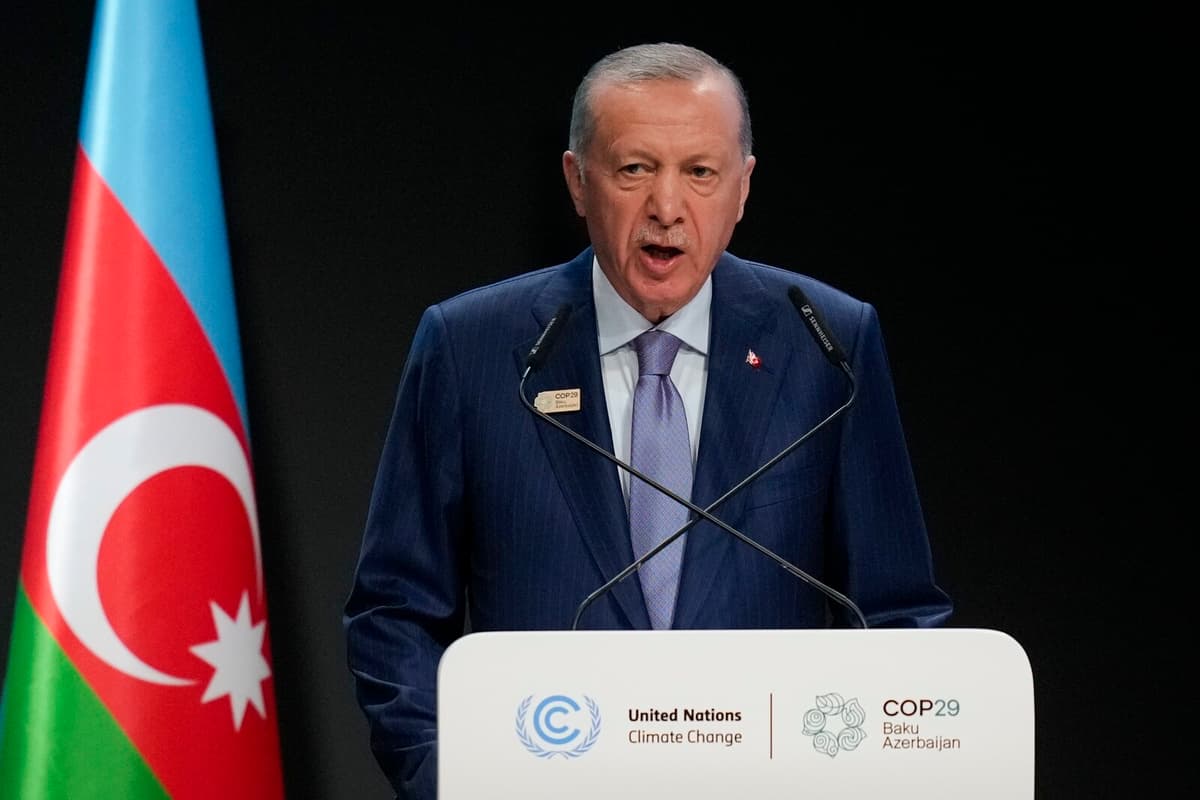Turkey's president is sharpening his tone against the Kurdish groups controlling parts of northern Syria. After the Assad regime's fall, the playing field has shifted in Erdogan's favor: The new government in Damascus is friendly towards Turkey, even though the regime is still a weak construction.
Moreover, Donald Trump is on his way to becoming the President of the USA again.
Trump has shown great understanding for Erdogan's views on Syria, and has previously stated that he wants the USA to leave Syria. And it is the USA that is protecting the Kurdish groups in most of Syria, says Aron Lund, analyst at the Total Defense Research Institute.
The cluster of PKK-loyal groups has very dark future prospects right now. It doesn't look good for them in Syria at all.
Weight behind the words
This is not the first time Erdogan has threatened to take action in northern Syria. He has previously warned of an intervention to prevent Syria from being divided, or to prevent, as he puts it, a "terror state" at Turkey's southern border.
And there is weight behind the words since Turkey has already intervened in Syria before, emphasizes Aron Lund. But how an intervention could look is unclear.
If he can solve it by mobilizing Turkey-backed rebel groups, whether it's HTS or others, then that's a neat solution. But Erdogan can also cross the border with Turkish forces if he wants to. Then the question is whether it can lead to trouble with the USA.
The same message
According to HTS leader Ahmed al-Sharaa, Kurdish forces are to be integrated into a Syrian army. It's essentially the same message that came from former dictator Bashar al-Assad, says Aron Lund.
From the Kurdish side, one thinks that one should merge as a kind of own army within the army, so to speak. But from Damascus' perspective – regardless of who is in charge – one believes that they should dissolve their units and join as individual soldiers.
The most important thing for Erdogan is to get rid of the support and infrastructure that PKK has in parts of Syria, and that there is no Kurdish self-determination that can inspire Kurds in Turkey.
If a Damascus regime is formed that can take control of the Kurdish areas all the way up to the border, that would be ideal for Erdogan, says Aron Lund.
Syria's democratic forces, SDF, have made up a large part of the resistance against the terrorist organization IS in Syria. SDF is dominated by the Kurdish YPG militia.
YPG (People's Defense Units) is the armed branch of PYD (Democratic Union Party), which is the largest political party among Kurds in Syria.
The Kurdish forces maintain a Kurdish self-governance in northeastern Syria, but fierce battles have raged between these and pro-Turkish militant groups after Assad's fall. Syria's de facto leader, Islamist Ahmed al-Sharaa, believes that the Kurdish forces should be integrated into the army controlled from Damascus.
Turkey equates YPG and PYD with the Kurdistan Workers' Party PKK, which is labeled as a terrorist organization by Turkey, the EU, and the USA after taking up arms against the Turkish state in the fight for independence.






